Apps Create
Apps are types of software that helps customers achieve their goals.
Create a New App#
To create a new app from the dashboard just click the + NEW APP button
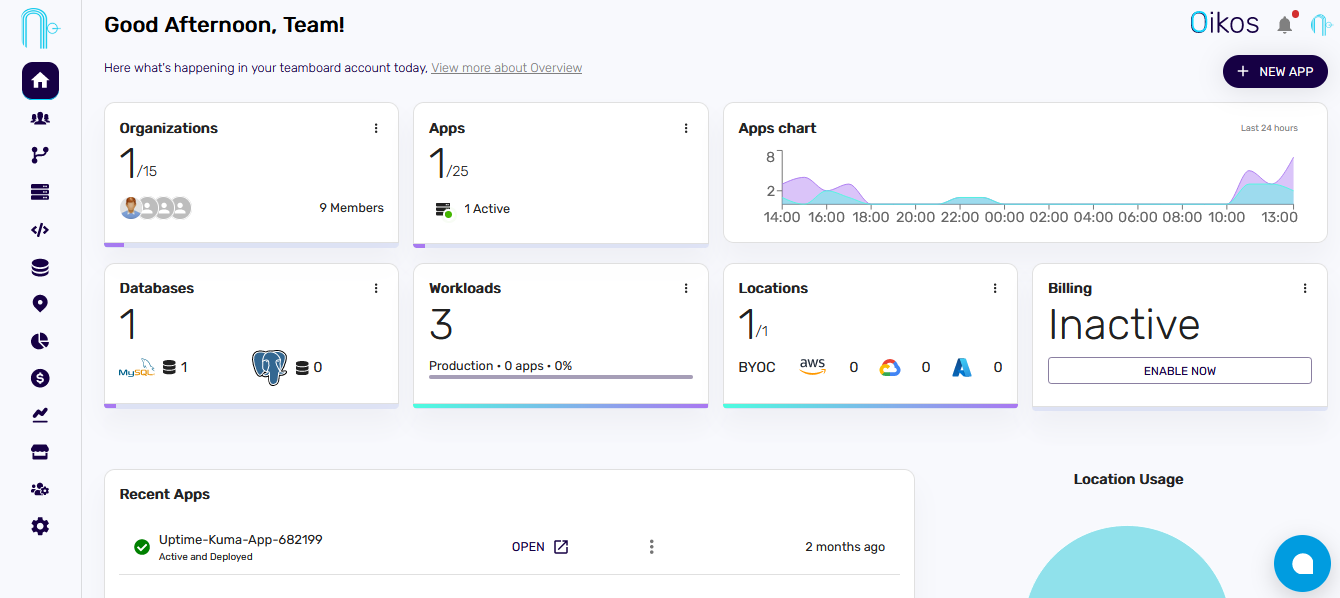
You can also create new apps from the left navigation > Apps > + New AppButton.
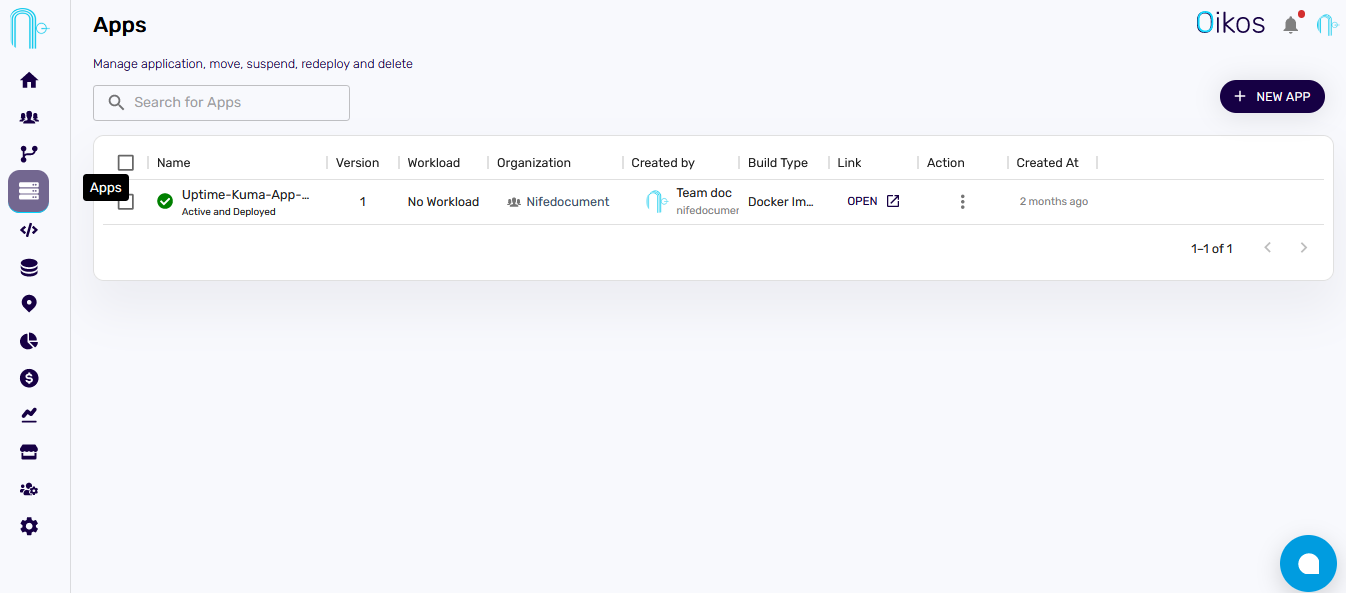
Once you click on the NEW APP button to create one, you will find the steps to configure the apps
- Selecting the Organization/Sub-organization/Business Unit
- Selecting the Workload
- Configuration of the App
- Choice of scaling the App to other regions
To create your app
- Provide the app name on the top of the page
- Choose an organisation from your existing organizations
- Configure the app (this will be explained in detail in the configuration and Deployment types sections)
- Once the app is deployed, it can be scaled or extended to other regions
App Name#
The App name is a unique name provided for your app, by default it uses a random pre-selected name example wonderful-app.
Choose Organization#
If you do not have any organisations ready then create new by clicking the CREATE NEW ORGANIZATION link. You choose all the organizations available to the user.
To learn more about Organizations visit Organizations section
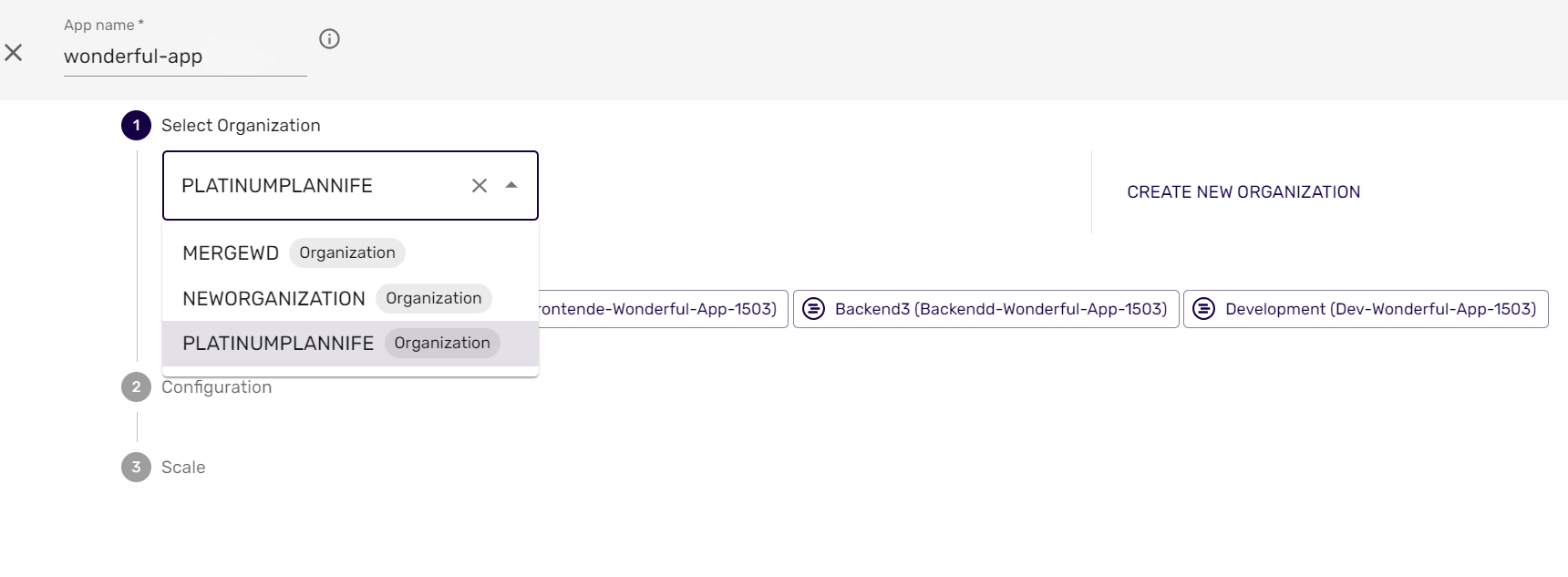
Choose Workload#
If the organization has any workloads, then the workloads will be listed here. We can select the workload for which we want to create an app. We can create an app even without workload by selecting “continue without workload”.
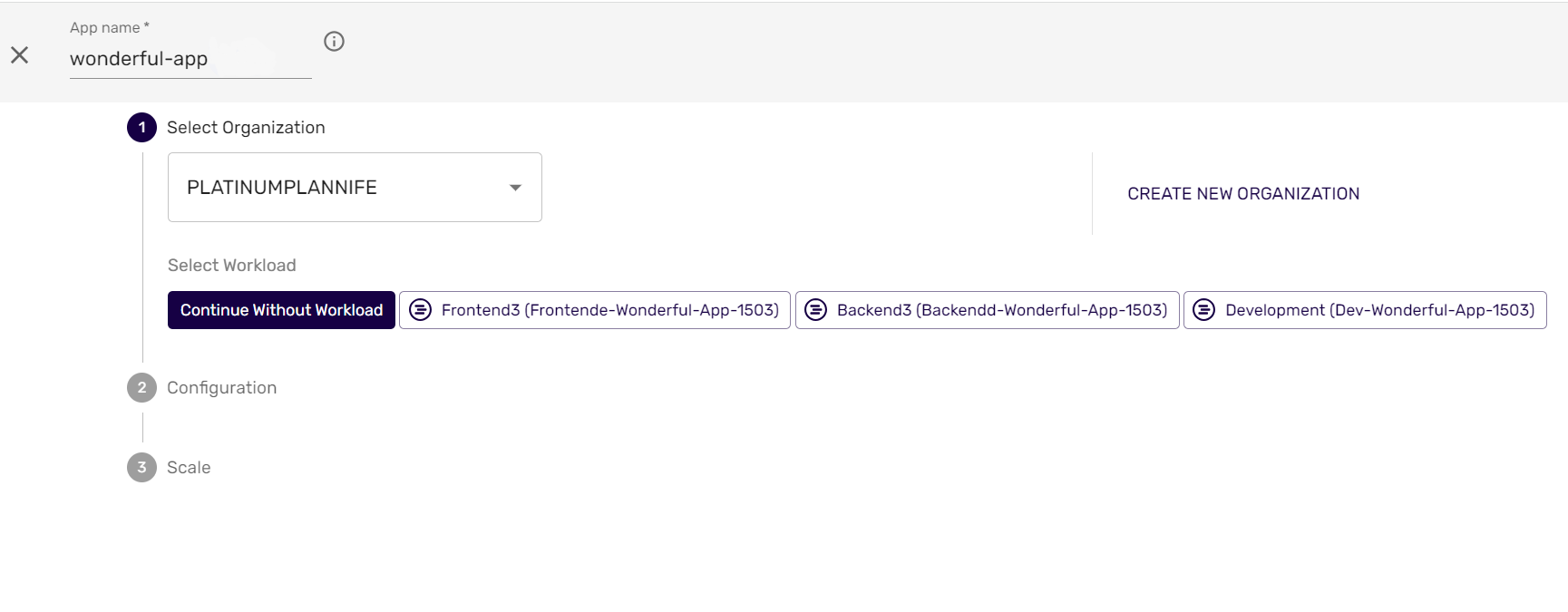
If the organization has no workloads, then after selecting the organization, the configuration page will appear.
Configuration#
After selecting the workload, the configuration page appears:
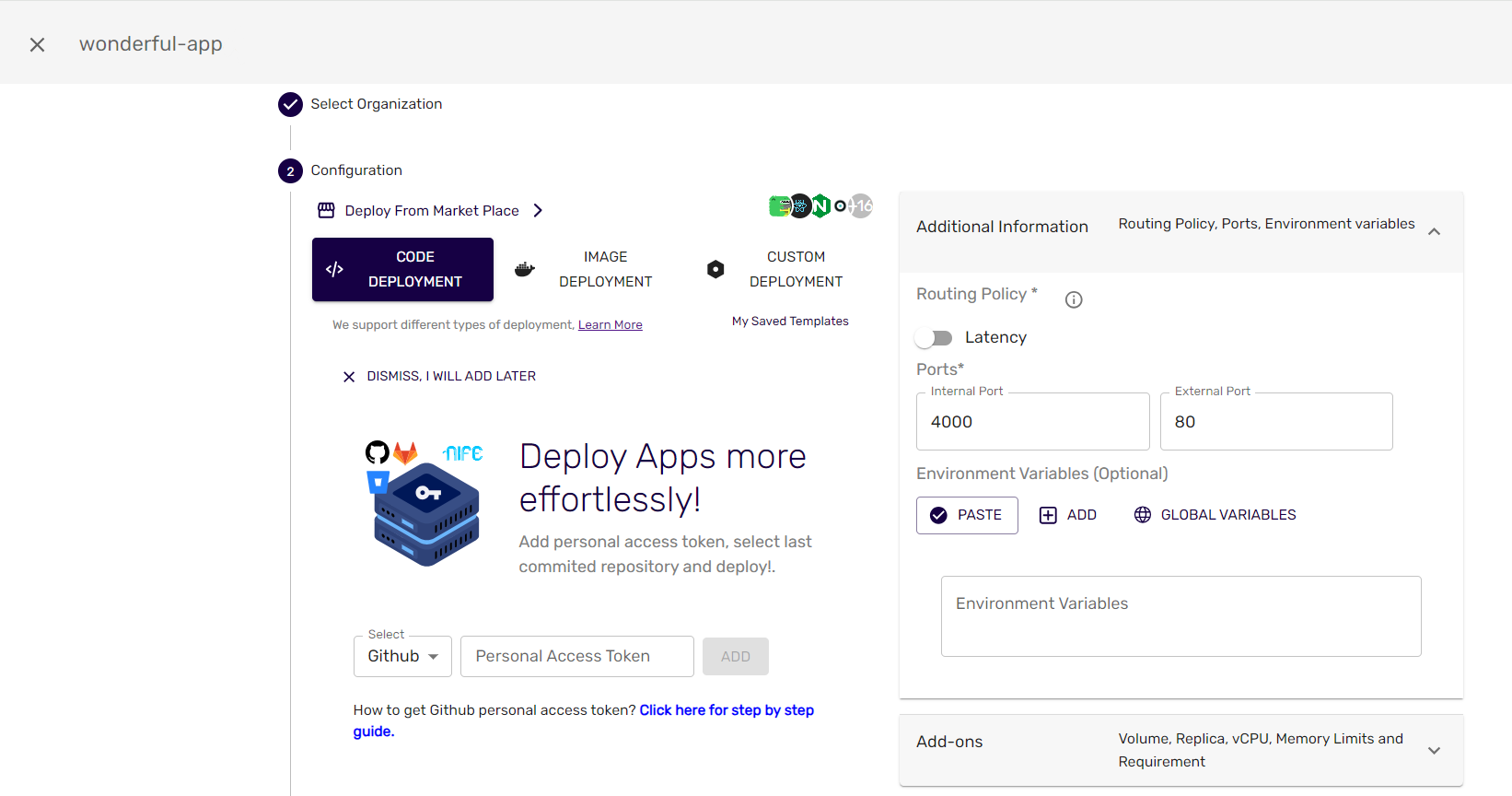
The configuration section has the following options:
- Deployment types: Indicates the different ways to deploy an application
- Additional Configuration information: Provides details on Networking and Resources used for the deployment
- Routing information: Customers can choose between Latency and Geo based routing
- Ports: Customers can define Internal and external ports
- Environment variables: Customers can set the environment variables needed for proper running of the application.
- Attach Volume: Customers need to pass the volume size here
- Resource configuration options: This includes vCPU and memory requirements